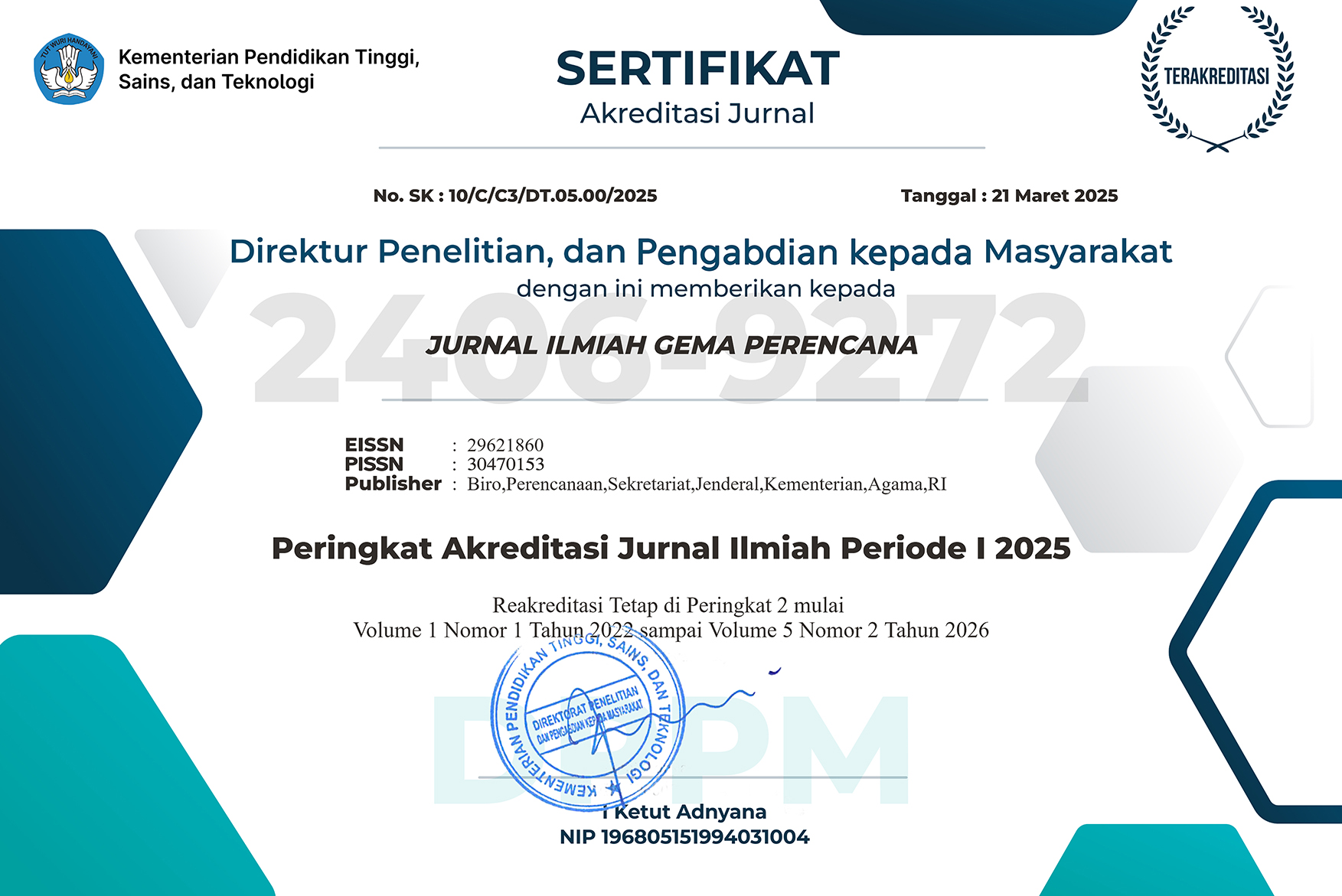Policy to Increase the Proportion of Non-Primary Income for BLU PTKIN: Reducing Dependence on Tuition Fees through Business Unit Empowerment
DOI:
https://doi.org/10.61860/jigp.v3i3.177Abstract
This policy paper presents a study on the policy of increasing the proportion of revenue from non-educational services (supporting services) at State Islamic Religious Colleges (PTKIN) with the status of Public Service Agency (BLU). The purpose of this study is to achieve the target of BLU management, namely to provide financially sustainable public services. The writing methodology used is qualitative with a descriptive approach, utilizing secondary data and SWOT analysis to identify internal and external factors that influence the management of supporting business units at PTKIN BLU. The results of the study indicate that the low proportion of BLU revenue is caused by two main factors, namely: suboptimal management of business units and limited human resource competencies. Based on these findings, several alternative policies are proposed, including the development of industry-based research and innovation clusters, internal and external regulatory reforms for the professionalization of business unit management, reform of the organizational structure of business units, and diversification of business unit types. The main recommendation proposed is internal and external regulatory reforms for the professionalization of business unit management. These are addressed to the Ministry of Finance as the BLU Financial Supervisor and the Ministry of Religious Affairs.
Downloads
References
Ariani, D. (2022). Pengelolaan keuangan Badan Layanan Umum di sektor pendidikan. Pustaka Edukasi.
Bafadal, I., B., I. (2021). Diversifikasi sumber pendapatan di lembaga pendidikan tinggi untuk stabilitas keuangan. Jurnal Ekonomi Dan Manajemen Pendidikan, 12(1), 23–35. https://doi.org/10.1234/jemp.2021.v12i1.23
Baker, J. (2022). Educational institutions and business development: Challenges and opportunities. Academic Press.
Becker, G.S., H., M. A. (1998). Human resource development theory. Journal of Business Studie, 21(3), 115–130.
Ebrahim, A. S., & Rangan, V. K. (2010). The Limits of Nonprofit Impact: A Contingency Framework for Measuring Social Performance. SSRN Electronic Journal. https://doi.org/10.2139/ssrn.1611810
Johnson, R., J., P. (2021). Technological innovation in higher education: Opportunities for commercialization. Education Press.
Kementerian Keuangan Republik Indonesia. (2020). Peraturan Menteri Keuangan Nomor 129/PMK.05/2020 tentang Pedoman Pengelolaan Badan Layanan Umum. Kementerian Keuangan Republik Indonesia.
Kementerian Keuangan Republik Indonesia. (2022). Peraturan Menteri Keuangan Nomor 202/PMK.05/2022 tentang Kebijakan Pengelolaan Badan Layanan Umum. Kementerian Keuangan Republik Indonesia.
Kotter, J. P. (1996). Leading change. Harvard Business Review Press.
Meyer, J., Klein, G., & Oliver, S. (2020). Strategic management for public institutions: A case study of higher education. Springer Verlag.
Porter, M. E. (1985). Competitive advantage: Creating and sustaining superior performance. Bina Nusantara Publishing.
Pusvitasari, A. (2024). Dampak peningkatan jumlah mahasiswa terhadap kualitas pendidikan di Perguruan Tinggi Keagamaan Islam Negeri. Jurnal Pendidikan Islam, 16(2), 45–58. https://doi.org/10.1234/jpi.2024.v16i2.45
Rahman, A., & Ismail, M. (2020). Profesionalisme pengelolaan unit bisnis di pendidikan tinggi. Bina Nusantara Publishing.
Schick, J. (2021). Higher education business strategies: Navigating the competitive landscape. University Press.
Sutanto, H. (2020). Diversifikasi pendapatan di Badan Layanan Umum: Studi kasus di perguruan tinggi. PT. Pustaka Inovasi.
Suyanto, A. (2018). Public financial management theory and its implications for public sector efficiency. Journal of Economic Policy Studies, 16(2), 75–88. Bafadal, I.,. Journal of Economic Policy Studies, 16(2), 75–88.
Downloads
Published
How to Cite
Issue
Section
License
Copyright (c) 2025 JURNAL ILMIAH GEMA PERENCANA

This work is licensed under a Creative Commons Attribution 4.0 International License.






